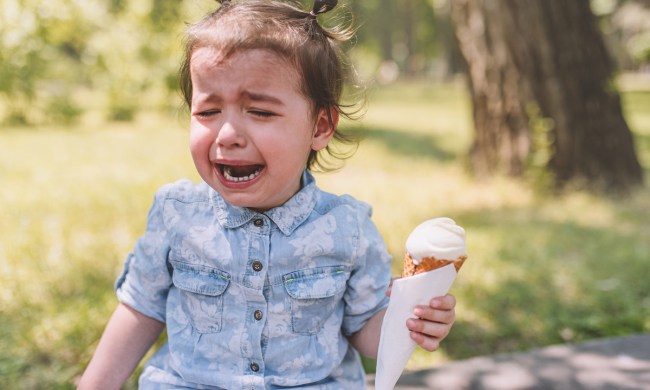We’ve heard horror stories from some of our peers about growing up with strict parents. Afterward, we might wonder how strict is too strict? And does leniency ever have a place in teaching appropriate behavior and values? The experts have weighed in on this topic and we will now bring you their insights and advice.

How do strict parents affect a child?
Growing up with strict parents, depending on how you might define “strict,” can give an advantage or pose an obstacle to developing decision-making and effective communication skills later in life.
For instance, parenting expert, author, mentor, and CEO of Decode Your Kids Genius, Cathy Domoney, provides her take on the matter as giving a positive edge:
Safe, loving, healthy boundaries are an act of love. It is our role as parents to be leaders for our children, and to guide them on being dedicated to learning and growth so that they can begin a quest to tread their own path with honor, grace, integrity, and kindness. A positive-strict parent holds their children to the highest standards with the intention of revealing to the child their inner brilliance. “Hey child, I see you, hear you, respect, and value you. I also see that you are capable of more in your behavior or attitude, and I am going to hold you to that. I see your greatness.”
Furthermore, Domoney adds that being a positive, strict parent usually includes leading by example, and therefore, always working on their own self-awareness and improvement.
Likewise, certified life coach, Deborah Porter, mentions how setting boundaries relates to age and maturity. She also connects the setting of rules to safety:
Strict parenting can affect children in different ways. The younger the child, there is an increased need for defined and perhaps numerous boundaries. In large part for their safety. As a child begins to grow and develop, they need to find their own voice and create their own boundaries.
What happens when a parent is too strict?
Although Domoney and Porter discuss the positive aspects of appropriately strict parenting, they also touch on the detrimental effects that come about when the scales aren’t balanced equally between giving too much freedom and giving too little.
As Domoney observes, a child growing up with strict parents who go overboard with the rules can suffer in the long run since they don’t have the tools to make individual decisions. Porter adds, “If we as parents continue to enforce boundaries meant for young children on preteens, teens, and dare I say it, young adults, the results can be disastrous.”
Basically, if a parent is too strict, then they can expect some pushback from their child.

What are the disadvantages of strict parents?
As Porter notes, a child growing up with strict parents often ends up rebelling, but not just for the sake of testing the rules. That particular child is going to feel as if there’s no relationship with the parent — just rules. As a result, they will look elsewhere for acceptance and validation.
Domoney echoes that observation. If the child is consistently bombarded with rules with no explanation or rationale, then they’re bound to feel inadequate — and bullied.
How does strict parenting affect adulthood?
Porter also mentions that as a child gets older, they might isolate away from their family and eventually, start making reckless decisions that could have lasting negative effects on their future.
Domoney also notes that sometimes when a parent is too strict, they’re trying to project their own flaws onto the child. This can create a terrible cycle of a parent piling on more rules as the kid seeks to please them. In turn, this increases the child’s risk for anxiety or depression later on. Moreover, there’s a chance of history repeating itself once that kid reaches adulthood and has their own family.
What happens when parents are too strict?
Consequently, a child can develop low self-esteem on account of overly strict parenting. Additionally, children growing up with strict parents tend to have difficulty developing self-regulation skills. With almost all aspects of behavior dictated to them, these children don’t have a chance to form their own problem-solving and communication skills. Aside from the issues of mental health, the stress of such a household can cause physical symptoms, such as headaches, increased or decreased appetite, stomachaches, and insomnia.
The best approach is to find a balance between providing age-appropriate boundaries and allowing a child enough freedom to make decisions while taking responsibility for their own actions. Growing up with strict parents doesn’t have to involve squelching the decision-making process. After all, the relationship between parent and child grows from communication and mutual trust that the adult will offer advice in a supportive and constructive manner while the child doesn’t try to skirt around the rules.



